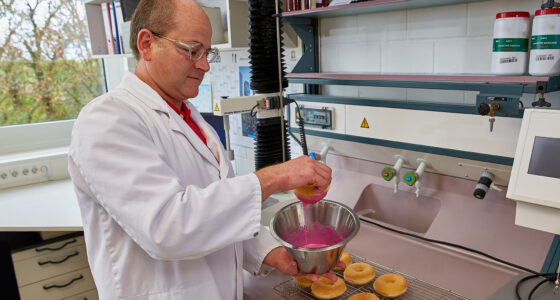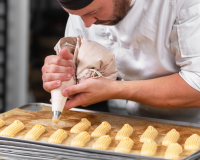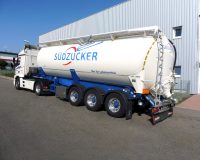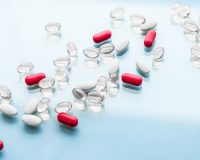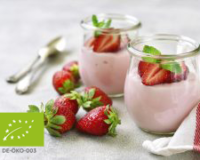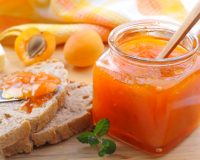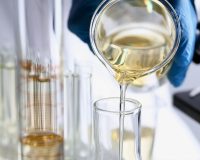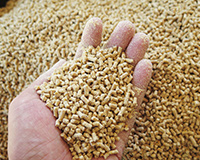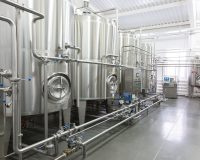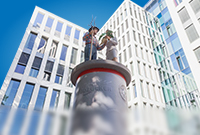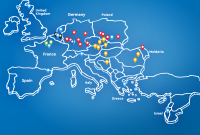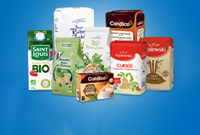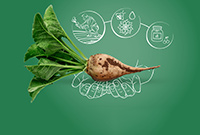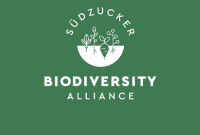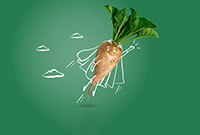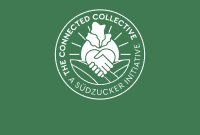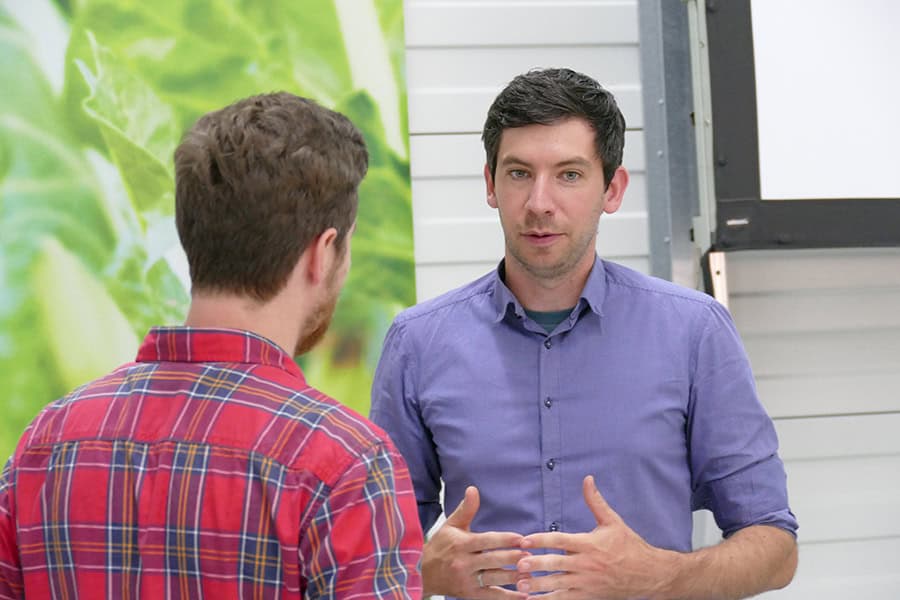
Team Up for Sustaining Tomorrow: KLUG and Südzucker Advancing Sustainability Along the Value Chain
The sustainable cultivation of sugar beet is the focus of the annual Sustainable Farming Days organised by the Südzucker Sugar Division in cooperation with Südzucker’s soil health service and the Agriculture business unit. Südzucker invites customers and partners to various locations to gain practical insights into sustainable cultivation methods and the current challenges facing agriculture. The aim of the event is to bring the journey from farm to fork to life and to highlight concrete solutions for sustainable food production for the future.
At the Sustainable Farming Days on the Kirschgartshausen experimental farm near Mannheim, Germany, Kevin Schopp, Head of B2B Marketing at the Südzucker Sugar Division, and Jan Unkel, purchaser at KLUG Fachgroßhandel für Kellereibedarf GmbH, got into conversation. KLUG is a subsidiary of Raiffeisen Warenzentrale Rhein-Main AG. The exchange focused on sustainable agriculture in viticulture, regional supply chains and the question of how customers along the value chain can be made more committed to sustainability.
Südzucker: Let’s start with a general question: How important is sustainability to your company?
Jan Unkel: Sustainability and renewable energies are undoubtedly of central importance – both from an ecological and an economic perspective. In view of climate change and growing social awareness of the need to use natural resources responsibly, sustainable action is essential today.
The switch to more sustainable processes and products offers not only ecological but also economic advantages: companies are rethinking existing processes, increasing their efficiency and reducing costs in the long term. In this sense, sustainability means not only better for the environment, but also greater efficiency.
Particularly in view of rising prices for fossil fuels, it is crucial to invest in sustainable solutions at an early stage in order to remain competitive in the future – especially on the international market. I see German companies playing a pioneering role in this area. Even if such investments involve costs in the short term, I am convinced that they will pay off in the long run.
Südzucker: Does regenerative agriculture already play a role in viticulture, or is the focus more on sourcing ingredients such as sugar for wine?
Jan Unkel: Regenerative agriculture is of central importance in viticulture. From a cultivation perspective, numerous measures are already being implemented. A major focus is on soil quality: for example, cover crops are used to improve the availability of nutrients in the soil through humus. Permanent vegetation also helps to stabilise the soil and counteract erosion, especially on steep slopes. This is where there is an increased risk of valuable soil being washed away during heavy rainfall.
Careful use of water is another measure that has already been implemented: drip irrigation is used to water the vines selectively. This ensures that less water evaporates and the vines get more of the scarce water available.
Jan Unkel
Purchaser, KLUG Fachgroßhandel für Kellereibedarf GmbH“The switch to more sustainable processes and products offers not only ecological but also economic advantages: companies are rethinking existing processes, increasing their efficiency and reducing costs in the long term.
In this sense, sustainability means not only better for the environment, but also greater efficiency.”
Südzucker: How important is sustainable agriculture to you when selecting new suppliers? Is this aspect already actively incorporated into your decision-making processes, or does it currently play a rather minor role?
Jan Unkel: At present, it is still of relatively little importance. As a retailer, we are dependent on the requirements of our customers, for whom sustainability does not yet play a central role. You often see this in everyday life in private households: people’s personal attitudes towards sustainability are positive, but their actual purchasing decisions at the checkout are usually different – especially when it comes to price.
Nevertheless, we do incorporate sustainability aspects into our decisions – albeit more as a ‘tipping factor’. So it is not a decisive criterion, but an aspect that we consciously evaluate. Our influence here is limited, but we are constantly trying to raise awareness of the issue among our partners. And we are actually succeeding in convincing individual customers time and again.
One area where sustainability plays a very important role for us and our customers is regionality. We attach great importance to short supply chains and cooperation with regional partners. A good example is our commitment in the sugar sector: we work with beet farmers from the region and want to consciously re-establish sugar in the region – also because many of our winegrowers also grow beet. In this respect, regionality is a central component of our sustainable supplier selection.
Südzucker: How do you feel about Südzucker hosting a Sustainable Farming Day? What impact do you think an event like this has?
Jan Unkel: This is actually my first time at this event and I found it very interesting. Due to my background in agricultural science, I was already familiar with some of the content, but I still gained new insights.
I think the event was well organised and I particularly liked the connection between the theoretical content inside the hall and the practical content in the field – this exchange between theory and practice was very good.

Südzucker: Would it also be an option for you to more closely connect customers who are not yet fully convinced with us along the value chain – similar to what we are doing today with Sustainable Farming Day, by actively involving and engaging them?
Jan Unkel: Yes, definitely. We have many customers in the agricultural sector, including numerous beet growers who are already familiar with the product. The proportion of industrial customers who have no direct connection to agricultural production – i.e. who have never seen a sugar beet before – is relatively low.
Our customer base therefore consists mainly of experts or at least people with a sound basic knowledge. Nevertheless, many of them operate primarily within their own business environment. It can therefore be very interesting for this target group to learn about modern technologies such as a hoeing robot.
I am convinced that such an experience can help to promote interest in sustainable products.
Südzucker: Do you see Südzucker as a sustainable partner?
Jan Unkel: Yes, definitely. Especially with regard to the investments or subsidiaries that deal with renewable fuels. Or with field beans to create meat substitutes, or perhaps also field beans for animal feed or co-products from sugar beet. How it is completely utilised so that the harvest residues can then be fed to animals instead of importing soy. So a lot is already being done for sustainability. That’s why I think you have a relatively good pioneering role in this area or are setting a good example, yes.
Südzucker: Thank you very much, I hope you enjoy the Sustainable Farming Days!
Read the interview with our Belgian Sustainability Manager, Sylvie Decaigny, on the importance of regenerative agriculture for a sustainable future, the role of collaboration and the initiatives that Südzucker is undertaking in this area.


